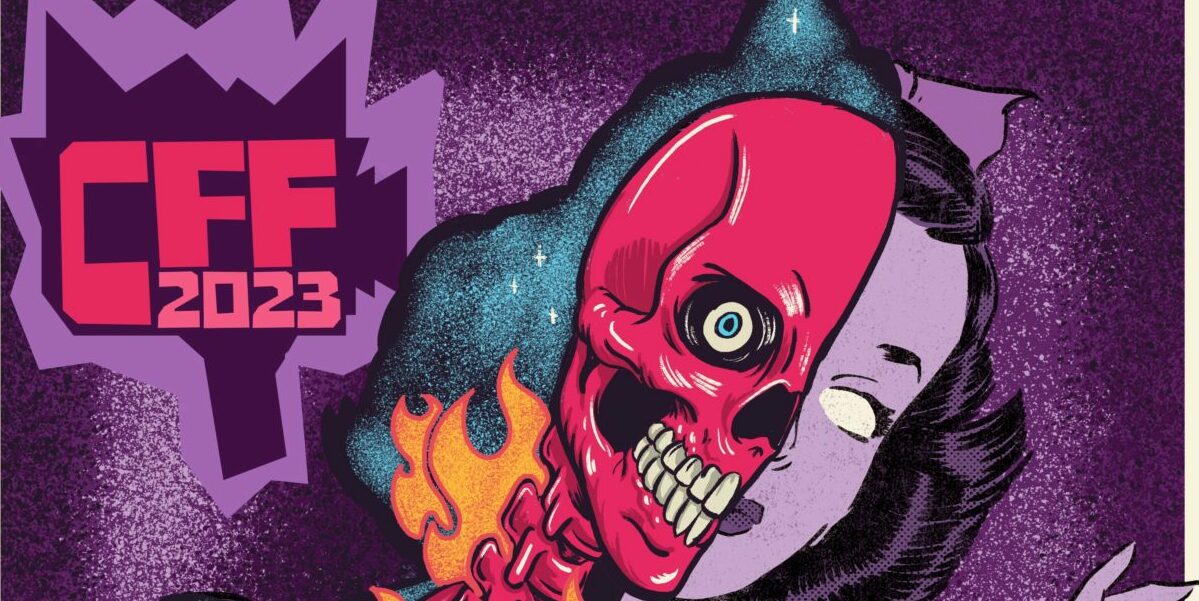
 Imagine if you will one day finding out that in thirty days existence would be over. There’s no possibility it’s a hallucination; you objectively know we have thirty days left. What would you do? Reconnect with loved ones? Furiously work your way through a bucket list? Throw yourself into a cesspool of hedonistic mayhem? Or maybe you would try to finish that high school project you never got around to. Nathan Blackwell’s The Last Movie Ever Made posits that even in the face of ultimate annihilation, pursuing our dreams and achieving our goals still matter, regardless of how trivial or silly they might be.
Imagine if you will one day finding out that in thirty days existence would be over. There’s no possibility it’s a hallucination; you objectively know we have thirty days left. What would you do? Reconnect with loved ones? Furiously work your way through a bucket list? Throw yourself into a cesspool of hedonistic mayhem? Or maybe you would try to finish that high school project you never got around to. Nathan Blackwell’s The Last Movie Ever Made posits that even in the face of ultimate annihilation, pursuing our dreams and achieving our goals still matter, regardless of how trivial or silly they might be.
The Last Movie Ever Made is the story of Marshall, an aimless thirty something who works in a stereo repair shop and spends his days drifting through existence. One day, Marshall and everyone else on Earth simultaneously hear an internal voice announce to them that their entire lives have been a mass computer simulation carried out by future humans, and in thirty days the simulation will end and existence as we know it will cease. Marshall spends a whirlwind two weeks of hedonism, indulging every whim he’s ever had. Suddenly, with fifteen days left before the end, he is stricken with the desire to finish a sci-fi film he and his friends had started making when they were in high school. He proceeds to do his best to assemble those still willing to put up with his antics and spend their last days putting together a goofball Star Trek ripoff.

A premise like this could easily turn unbearably saccharine in the wrong hands. Instead, Nathan Blackwell chooses to tell a tale that is straightforward, earnest, and takes an unflinching look at the dilemma of what we would do in this situation. Sure, Marshall chooses to try and reconnect with some friends he hasn’t seen in years, but he also wisely chooses not to waste any time on relations that aren’t worth it. It could come off as somewhat callous in a certain interpretation but instead succeeds in being beautifully honest and affirming, especially when he reconnects with an ex partner of his and in a rather touching soliloquy leaves it all out on the table emotionally. If we’re gonna die we should go out clean, says Blackwell.
Also at the forefront is the concept of creating art merely for the sake of doing so. In two weeks, there will be no one left to appreciate what they’ve done, but that doesn’t matter. They’re working to create something wonderful in the face of annihilation, a sort of collective middle finger to whatever forces (annoyingly jaunty British accented future scientists apparently) have decided that this existence is about to come to an end. It’s not so cliched as the endurance of the human spirt; indeed, the human spirit is about to be wiped out. It’s more of a declaration that art is still beautiful even in the worst of times, and our passions are worth pursuing no matter what. It’s a deeply moving message for a film about the making of a impassioned but woefully unprofessional Star Trek/Buck Rogers style serial.

The Last Movie Ever Made is a near perfect work of optimism, even with the dour ending. It’s a commentary really upon human nature as a whole, and it’s drive to create even in the face of its own mortality. Think of the stark melancholy beauty of David Bowie’s Black Star, or the anthemic defiance of Queen’s “The Show Must Go On”. These were works created by people who knew their time on earth was limited and they gave us something magnificent to remember them by. In the case of The Last Movie Ever Made, this desire to create something memorable transcends the grim reality that there will be not one left to remember it. None. It’s made even more poignant by the fact that at several points in the film the characters openly discuss if anything they’ve ever felt has meant anything, and even in this uncertainty they still decide to push forth simply for the sake of creation.
Some might find this film cheesy. The humor (especially at the beginning) doesn’t always land, but ultimately, it’s a wholly enjoyable film that does a lot with very little. It’s a story of doing what you want to before it’s too late and never letting anyone tell you that your goals aren’t worth it and that the art that you create, even if it goes unseen, is worth creating simply to have it exist. And, in the end, it’s a commentary upon human mortality. The world might not be ending in 30 days (I hope not anyway) but someday, we will all die, so until then we should do what we can to create what we so dearly desire to.




